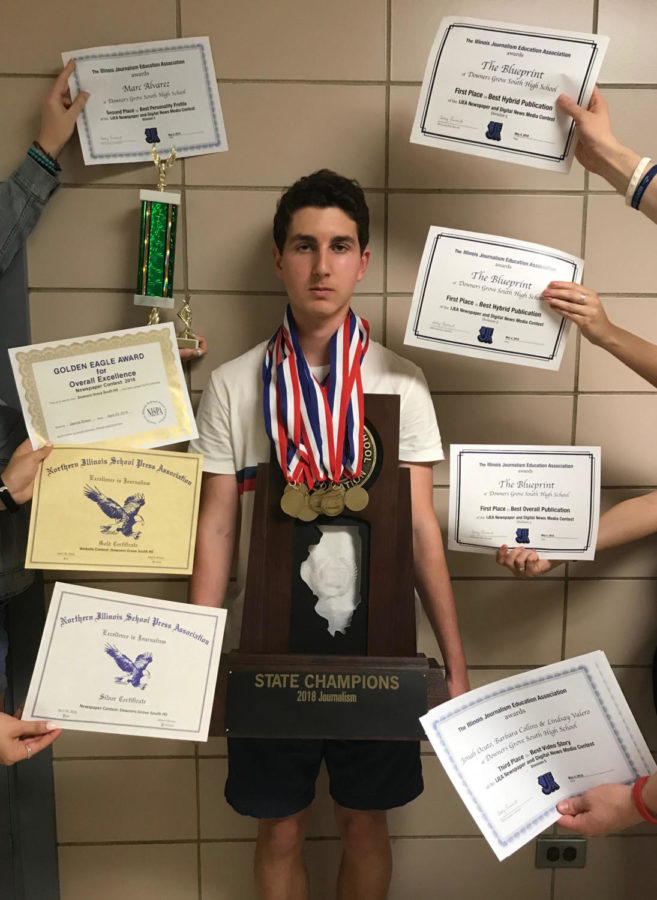How to actually write well
A few days ago I wrote a piece on how to write good. If you couldn’t tell, it was satirical and should not, under any circumstances, be followed. However, as the school year comes to a close, I’d like to leave a few tips on how to actually improve as a writer.
First, and this is the most important, read. Read constantly. Read books, magazines, articles. The best way to improve as a writer is to read works from people way better than you and try to emulate what they do. Important note: do not plagiarize.
Another important note: I’m not advocating for an AP Language rhetorical analysis about something you don’t care about. Instead, read for fun, read about things that interest you and try to pick up a few things along the way.
If at this point you are unsure of where to find great things to read, I have a few suggestions.
For books: go to the library, browse Amazon or my personal favorite, Goodreads.com. Goodreads allows you to create a digital bookshelf of everything you’ve ever read and then provides an endless amount of lists of other great books you should read.
For magazine/long-form content: one of my favorite websites is the aptly named longform.org. Longform aggregates long-form content from a vast array of past and present sources in one convenient place. You may quickly max out the number of articles per month on places like newyorker.com or atavist.com; however, you can always subscribe and support great journalism—or use incognito mode.
For news: there are a million options for news and the best way to create a varied but digestible approach to find good news writing is really personal preference. Personally, I follow a long list of both major publications — think The New York Times, Washington Post, LA Times, etc.—and also a bunch of individual reporters who write about things that interest me. Following individual journalists is a great way not only to see what they are writing but also what they themselves are reading.
Quick disclaimer: Twitter is a terrible, terrible, no good place and I don’t bear any responsibility in regards to a possible addiction or any of the startling stupid takes on the vile and horrendous platform.
Other than Twitter, there are some other, less inflammatory avenues to get news. The Apple News app does a pretty good job as well as other RSS feed options that aggregate news content from publications you want to read.
At this point, I haven’t given any concrete examples of how to write well. Part of that is intentional, simply explaining how to properly use a coordinate conjunction isn’t very exciting—regardless of the “fun” song your English teacher makes up.
Another reason is that writing is both very situational and very personal. Writing an opinions piece differs greatly from a news article which is almost on another planet from writing an essay for English class.
I won’t leave you completely in the dark, however. This past year I was awarded second and third place by different state-wide organizations for personality profile writing and editorial writing. So for those two, I’ll break down a couple simple and easy tips on how to improve on these two specific areas.
First, I’ll go over opinions writing. It may seem that the best way to be a good opinions writer is to be opinionated—this is wrong. The best way is to be educated; the more knowledgeable you are about a subject the better.
In order to write a good opinions piece, it is necessary to be able to think about an issue critically and logically. Writing about things you are passionate about often results in great work, but at times the emotion can overpower what the piece actually says.
Next, on to personality feature writing. The most important thing you can do is know your subject super well through interviews and background research. Once you’ve accomplished this, writing the article is like doing a jigsaw puzzle with quotes and facts as the pieces and the story you want to tell as the complete puzzle.
Hopefully this article gives a window into my writing process and it, in turn, helps you in your own writing pursuits. My last parting words of advice would be to find a teacher that you can share your writing with and help you improve. More than anything listed above, a good mentor can turn good writing into great writing.


